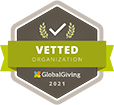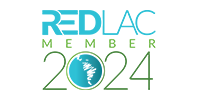Fishermen from the Gulf of Honduras came together to share their experiences of economic diversification to conserve fisheries

It’s exciting to see fishers across the region working together to ensure a sustainable future for fisheries, their communities, and the next generation!
On September 25, a Fishermen’s Economic Diversification Exchange was organized by Fundación para el Eco-Desarrollo y la Conservación (FUNDAECO) in collaboration with Coral Reef Alliance (CORAL) and the Toledo Institute for Development and Environment (TIDE) and supported by The Summit Foundation and the French Facility for Global Environment (FFEM). The exchange was held as part of the Fisher Forum of the Tri-national Alliance for the Conservation of the Gulf of Honduras (TRIGOH), organized by Cuerpos de Conservación de Omoa (CCO) and supported by the International Union for Conservation of Nature (IUCN).
The event took place in Puerto Cortes, Honduras, and brought together 40 participants, including fishers, NGOs, and fisheries authorities from Belize, Guatemala, and Honduras, who are working together for integrated coastal zone management in the transnational area of the Gulf of Honduras.
During the Fisher’s Economic Diversification Exchange, fishers from each country shared their experiences on alternative livelihoods. These included a fishing gear shop and a fisherwomen’s restaurant in Guatemala, a seafood restaurant and seaweed-based products in Belize, and chicken coops and aquaponics systems in Honduras, encouraging other fishers to pursue alternative sustainable livelihoods to secure their income while allowing fish stocks to recover.
The MAR Fish project partners have committed to continue working to implement tailored diversification strategies for different communities in each country. CORAL with a fishermen’s association and two communities in Honduras, FUNDAECO with a pilot income diversification project with one community in Guatemala, and TIDE with a feasibility study for at least two communities in Belize. The fishermen, motivated by the shared experiences, committed to continue participating in these opportunities, recognizing the income benefits and economic security that these alternative livelihoods can bring to their families and their communities while supporting the recovery of their fisheries so they can continue to fish in the future.
During the forum, the fishers also expressed the challenges they face and their needs, proposing solutions regarding fisheries legislation, sustainable fishing gear, and the creation of protected areas to support fish replenishment. These measures are aimed at improving artisanal fisheries throughout the Gulf of Honduras. The NGOs and authorities committed to working on improving the regulatory system in each country, particularly concerning the transnational area, through a social and threat analysis to be carried out by the Wildlife Conservation Society (WCS). The results will be used by WCS to develop a policy brief in collaboration with the Central American Fisheries and Aquaculture Organization (OSPECA). The fishermen committed to integrate sustainable practices and management efforts to protect their fisheries.





